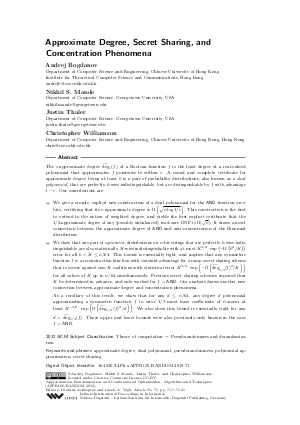LIPIcs.APPROX-RANDOM.2019.71.pdf
- Filesize: 0.55 MB
- 21 pages

 Creative Commons Attribution 3.0 Unported license
Creative Commons Attribution 3.0 Unported license



























Feedback for Dagstuhl Publishing